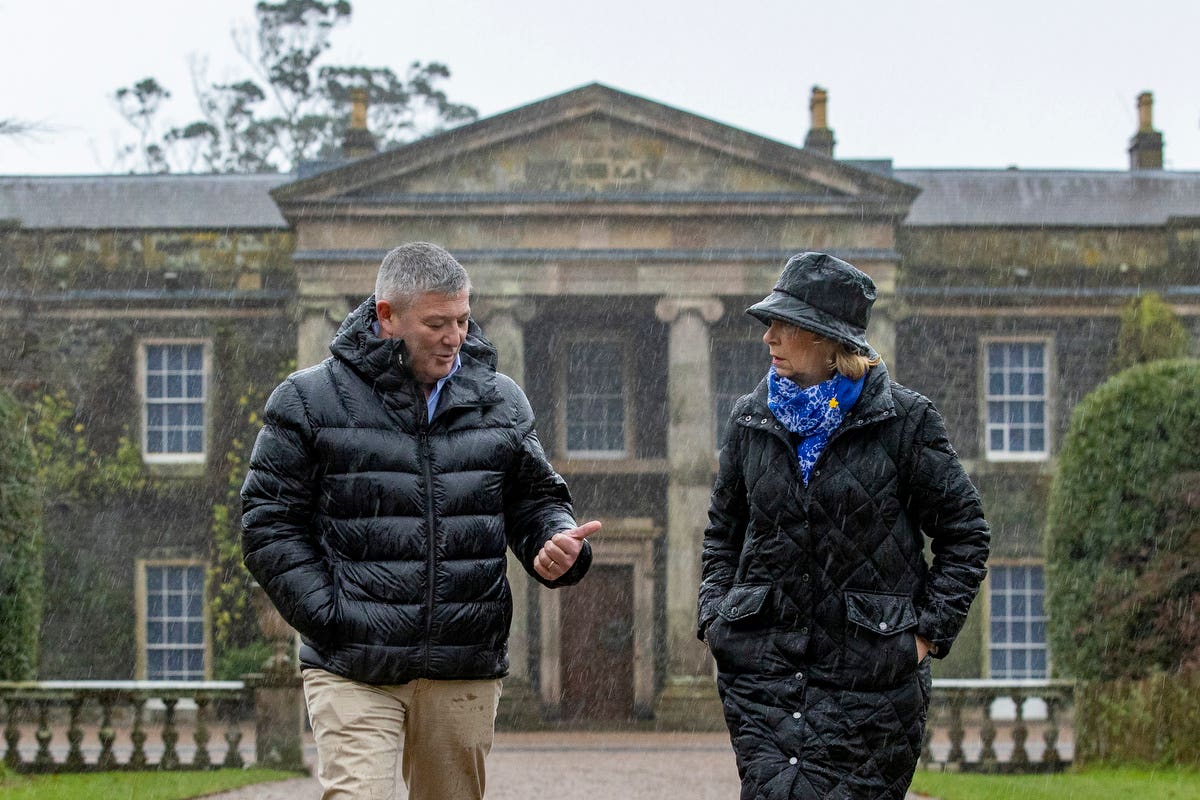Country estate used for ‘walk and talk’ bereavement therapy
Marie Curie and the National Trust have formed a partnership to deliver the novel counselling sessions for family members who have lost loved ones.

A novel partnership is harnessing the therapeutic power of nature to offer bereavement counselling on long walks at a country estate.
Marie Curie has teamed up with the National Trust to run the pilot initiative in the peaceful surrounds of Mount Stewart in Co Down, Northern Ireland.
Family members whose loved ones have died in the Marie Curie Hospice in Belfast are being offered the walk and talk therapy in the National Trust property on the banks of Strangford Lough as an alternative to a more traditional sit-down counselling session indoors.
The concept was developed out of necessity during the Covid-19 pandemic, when restrictions prevented Marie Curie counsellors meeting bereaved relatives inside the hospice.
The partnership has flourished since then, with four Marie Curie counsellors now using the beautiful gardens at Mount Stewart as the backdrop for therapy walks.
Brian McMillen, from Bangor, Co Down, was one of the first people to participate in a walk and talk session.
Mr McMillen’s wife Lally died in the Marie Curie Hospice in March 2020.
He credits his three daughters Chloe, Georgia and Kashia for encouraging him to give counselling a go.
“I wasn’t sure about it, but I did it,” he said.
“Because of Covid we couldn’t go into Marie Curie, but even at that I didn’t want to go back and return to where the last place I saw my wife, it wasn’t comfortable for me.
“So, it started out on the phone for about three months and then the counsellor actually suggested that we come and meet in Mount Stewart for a walk.
“We probably did it for about a year on a monthly basis, just coming and spending an hour or two hours walking and talking and it allowed me to tell what I wanted to tell without being with family.
“It helped me move forward. It helped me move on, helped me find a bit of peace being able to talk to somebody separate to my family.
“At the very beginning, I found it therapeutic just to get out of the office, to get away and be able to just walk and talk in beautiful surroundings.
“I couldn’t have done this looking at somebody in an office or in an environment where you’re having a cup of coffee. For me, it’s the outdoors, being able to walk alongside somebody and talking to them, instead of just sitting in an environment staring face-to-face.”
Retired teacher Helen Laird was Mr McMillen’s counsellor, and she was instrumental in getting the scheme up and running.
As both a Marie Curie counsellor and a National Trust volunteer at Mount Stewart, she saw an opportunity to combine the two roles when lockdowns were limiting counselling sessions to telephone conversations.
“Normally we would have worked in the hospice, we would have met our bereaved family members in the counselling rooms in the hospice,” she said.
“That of course wasn’t possible during Covid and we had to resort to telephone counselling, which actually worked remarkably well.
“But clearly this is a marvellous addition to what we can offer people who have been bereaved.
“You can get so far talking to people on the phone, but eventually there’s huge benefits to meeting up and meeting up in this beautiful place and being able to enjoy nature again, because very often bereaved people actually don’t enjoy anything.”
Ms Laird said she can see people change when they begin to take in the natural beauty around them.
“I can actually see their spirits lift,” she said.
“I can actually see a change taking place in them.
“I can see the change that gradually takes place as they begin to see things, smell the flowers if you like, see the wee birds, look at the changing colours of the trees, all of that.
“And for somebody who’s been bereaved and locked-in almost in their emotions, it’s huge for them to be able to see, well, actually there are nice things out there, things that I can appreciate.”
Tammi Peek, from the National Trust, hailed the success of the partnership.
“The National Trust is for everyone, forever, and working with a brilliant partner like Marie Curie enables us to make that a reality,” she said.
“I think we all realised during the lockdowns and Covid over the last few years how important it is to be in nature.
“But when you hit a time of trauma or bereavement, it is even more important and this enables us to offer our places to people who need it at a time of crisis in their own lives.”
Bookmark popover
Removed from bookmarks